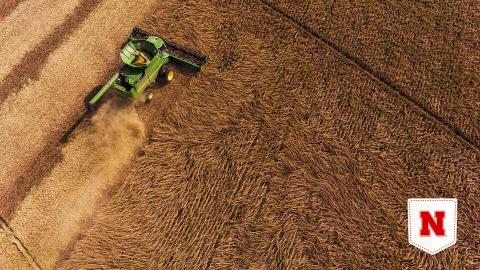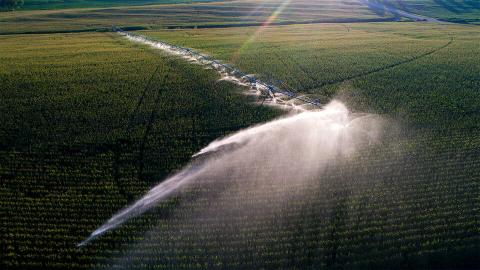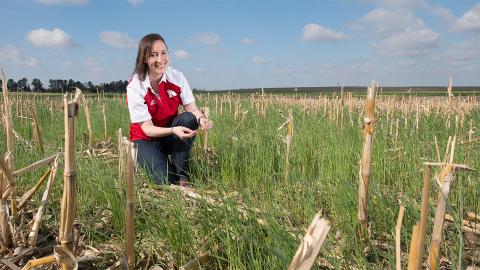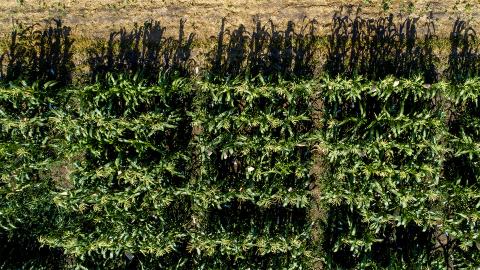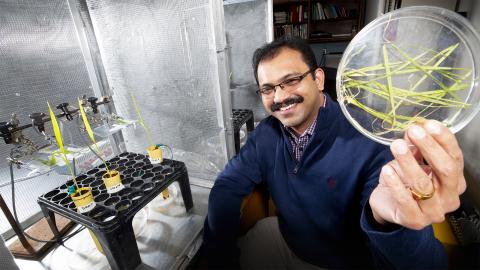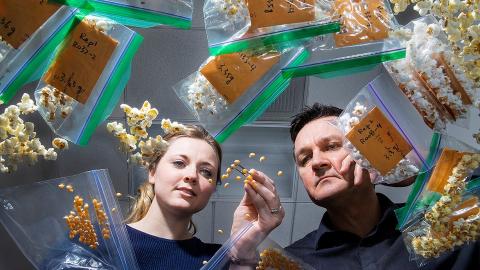Management Technique Shows Promise Against Emerging Soybean Pest
March 29, 2024
Entomologists at the University of Nebraska are experimenting with the production technique of hilling to control soybean gall midge populations in the Midwest.
Husker Study Finds Aquifer Depletion Threatens Crop Yields
February 1, 2024
Researchers involved in this study found that an aquifer’s depletion can curb crop yields even when it appears saturated enough to meet irrigation demands, and yield losses intensify when an aquifer drops below certain thresholds.
Which Farming Practices Help Soils Absorb Heavy Rains?
October 3, 2019
A synthesis of 89 studies across six continents has helped clarify which agricultural practices hold water when it comes to helping soils soak up precipitation — a factor critical to mitigating floods, outlasting drought and stabilizing crop yields.
Gap Growing Between Irrigated, Rainfed Crop Yields
August 13, 2019
A 65-year comparative analysis between U.S. yields of irrigated and rainfed crops has sounded a message to farmers, land managers and policymakers: Mind the gap. Researchers analyzed annual yields of nine crops on a county-by-county basis from 1950 to 2015.
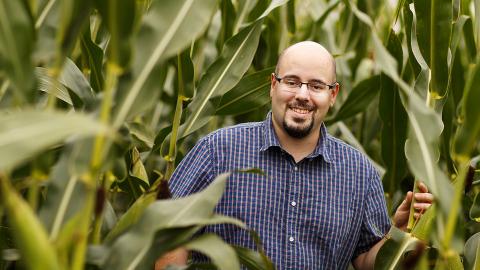
New Stalk Sensor Could Lead to Improved Drought-Resistant Corn
July 31, 2019
Researchers at the University of Nebraska and Iowa State University are pursuing an elusive goal: measuring rates of sap flow in corn in real-time, actual fields, and changing weather conditions. Their data on corn water use could lead to improved drought resistance.
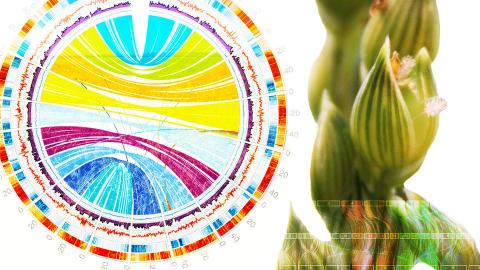
Sequencing of Proso Millet Genome Could Raise Yields, Expand Production Range
March 4, 2019
Researchers have now sequenced and mapped the genome of proso millet – a feat essential to raising yields of the drought-resistant crop in the Nebraska Panhandle and semiarid regions where population booms foreshadow food shortages.
Experiments Underscore Overlooked Aspect of Defending Corn from Pest
March 4, 2019
Spraying a corn plant with one of its own compounds — 12-oxo-phytodienoic acid, or OPDA — can help deter the virus-carrying, pollination-disrupting insect known as the corn-leaf aphid.
Genes to Proteins: Enriching the Nutritional Value of Popcorn, Sorghum
February 21, 2019
After years of research a University of Nebraska-Lincoln team led by David Holding has roughly doubled the content of lysine, an essential amino acid, in both popcorn and sorghum. For sorghum it could mean a more complete source of nutrition for many in the developing world.
